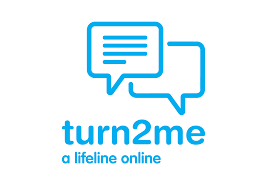By Fiona O’Malley, CEO of Turn2Me, a national mental health charity
Regular and heavy drinking can negatively affect the neurotransmitters in the brain that are responsible for positive mental health.
According to a 2019 study called Co-occurring alcohol use disorder and anxiety, ‘people who report drinking to cope with anxiety symptoms have an increased prospective risk for developing alcohol dependence. People with anxiety disorders who do not drink to cope with their symptoms do not have an increased risk for alcohol dependence.’
According to Stacy Mosel’s article Anxiety and Alcohol: Does Drinking Cause Anxiety and Panic Attacks? ‘Anxiety and alcohol use disorder are common co-occurring disorders that can cause serious distress and impair your daily functioning. Alcohol use disorder can exacerbate an existing anxiety disorder or may lead to new anxiety symptoms and vice versa, meaning that a pre-existing anxiety disorder can contribute to an alcohol use disorder.’
Explore Being Sober Curious
If you’re sober-curious, I would encourage you to consider giving up alcohol for a few months, a year, or to stop entirely. Since I stopped drinking, my anxiety levels are lower, my waistline is slimmer, my bank balance is healthier, and my productivity is higher. Alcohol is a depressant. It can make anxiety and depression worse, it can reduce sleep quality, and it can heighten stress levels.
Improving Your Mental Health
Reducing or cutting out alcohol can improve our mental health. Our moods can significantly improve when we reduce or stop drinking entirely. Setting yourself a challenge of giving up alcohol for a few months or a year can help you adapt to a healthier lifestyle. It can make us reflect on how many standard drinks we consume on average, every week and month, and it can also make us analyse our relationship with alcohol.
Many people use alcohol as a social crutch. They can start to rely on it in stressful or awkward situations. Nowadays, so many people decide to not drink at all, or not as much, on a night out, thanks to so many alcohol-free alternatives. A month-long alcohol-free challenge like Dry January or Sober October can make us consider how reliant we are on alcohol, why we consume alcohol, and how much happier we feel when we don’t drink as much or at all.
Using Alcohol to Cope With Stress
Using alcohol to numb emotions or to reduce stress is counterproductive. After the initial relaxing effects wear off, the problems at the root of the stress are still there and maybe heightened under the influence of alcohol. Trying to create complex reports for work may be stressful but imagine how much more stressful it would be when you have had a bad night’s sleep and are feeling anxious from the night before.
How Can Turn2Me Help?
If you’re feeling anxious, depressed, or going through a period of grief, you don’t have to turn to alcohol to try to find some comfort. Turn2Me offers adults in Ireland up to six free counseling sessions. Turn2Me also offers unlimited free support groups on anxiety, depression, grief, and relationship issues, available on the Turn2Me website, Turn2Me.ie
What if I’m Not Ready?
If you don’t feel like you’re ready for professional mental health support, try yoga, Pilates, meditation, or deep breathing. There are great, free classes available on YouTube. Alternatively, try journaling, going for a walk among nature, meeting a friend for tea and a catch-up, or signing up for an exercise class. Exercise releases stress-busting endorphins that can help with anxiety.


